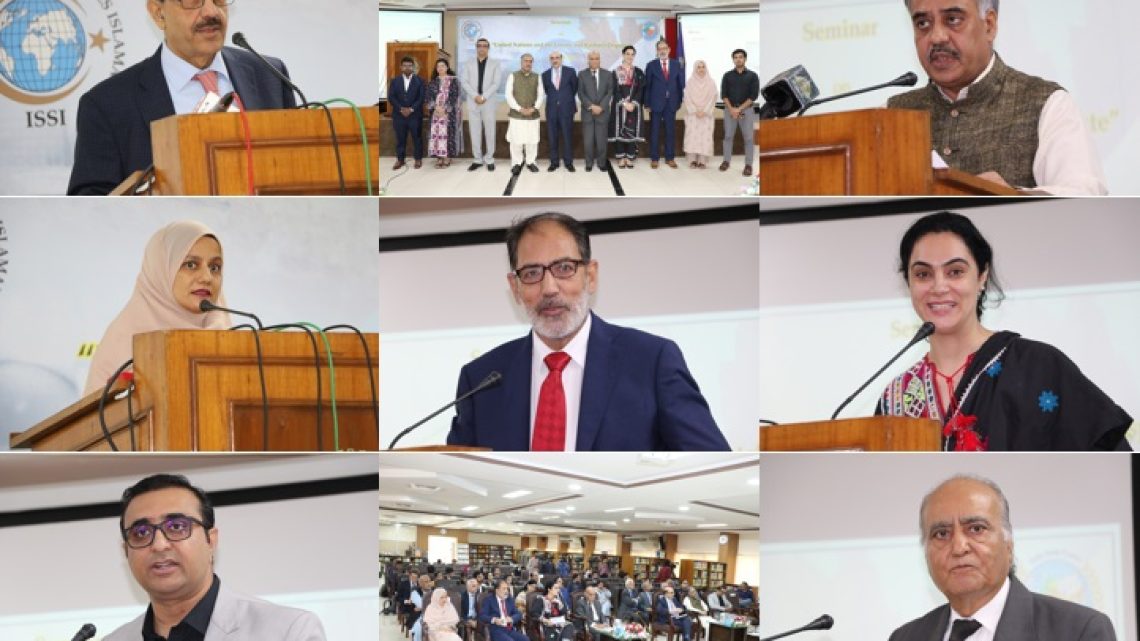
The UN’s Failure: A Call for Action on Kashmir
October 26, 2024At a recent seminar held in Islamabad, speakers openly criticized the United Nations’ credibility. They condemned the Indian government’s continuous violations of UN Security Council resolutions regarding Indian illegally occupied Jammu and Kashmir (IIOJK).
The event, titled “United Nations and the Jammu and Kashmir Dispute,” coincided with UN Day. Organized by the Institute of Strategic Studies Islamabad (ISSI), it gathered academics, media representatives, and experts to discuss this pressing issue.
Ambassador Sohail Mahmood highlighted the UN’s essential role in the Kashmir conflict. He urged for a free plebiscite under UN oversight, allowing Kashmiris their right to self-determination. Mahmood firmly rejected any attempts to label this struggle as terrorism. He demanded that the international community uphold its commitments to Kashmiris and that India honor its obligations.
DG ISSI Mahmood stressed the importance of UN Day for reaffirming commitment to the UN Charter and multilateralism. He acknowledged the UN’s humanitarian efforts but pointed out that member states are undermining multilateralism. He urged nations and the UN to prioritize principles over power when addressing international peace.
Chief guest Ambassador Masood Khan, former President of Azad Jammu and Kashmir, discussed historical events leading to the Kashmir tragedy since 1947. He criticized the geopolitical dynamics that skew major powers’ responses, particularly since the Cold War. Khan noted that justice often favors the stronger party, highlighting India’s aggressive actions in August 2019 as proof of its intent to dominate the dispute.
Farzana Yaqoob condemned India’s settler colonialism, urging Gulf Cooperation Council states to reassess their partnerships with India. Dr. Marium Fatima emphasized the legal aspects of Kashmir’s freedom struggle, asserting that self-determination is a universal right grounded in UN Security Council resolutions. She denounced misleading comparisons of Kashmir’s struggle with terrorism.
Altaf Hussain Wani addressed the implications of Hindutva ideology and demographic changes in IIOJK. He noted that the abrogation of Articles 370 and 35A serves to advance Modi’s agenda while undermining the Kashmiri freedom struggle. Despite India’s structural violence, Wani claimed the BJP’s goals remain unfulfilled due to widespread resistance.
Dr. Khurram Abbas, from the India Study Centre, pointed out that since 1948, the UNSC has passed 18 resolutions on the ‘India-Pakistan Question,’ many concerning Kashmir. He criticized India for ignoring these resolutions and coercively imposing its will on Kashmiris. He highlighted that recent elections in IIOJK do not reflect the true wishes of the Kashmiri people, referencing UNSC Resolutions 91 and 122.
The seminar concluded with Ambassador Khalid Mahmood, chairman of ISSI, stressing the UN’s urgent need to address the Kashmir dispute. This unresolved issue remains critical for peace and stability in the region, particularly in a nuclearized environment. The message is clear: the international community cannot afford to ignore Kashmir any longer.

